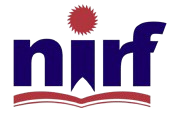

GTSS-2026
Green Technologies and Sustainable Solutions (GTSS-2026)
February 19-20, 2026 | MMMUT, Gorakhpur
Welcome To GTSS-2026
Green Technologies and Sustainable Solutions (GTSS-2026)
Chief Guest
Dr. Mukul Sutaone
Director, IIIT-Allahabad

Dr. Mukul Sutaone is currently the Director of Indian Institute of Information Technology, Allahabad, an Institute of National Importance established by an Act of Parliament. In the immediate past, he served as the First Vice Chancellor of COEP Technological University, Pune, a premier institution with a distinguished legacy in engineering education in India.
He worked at the College of Engineering, Pune (COEP) as Professor in the Department of Electronics and Telecommunication for more than 30 years, with illustrious accomplishments in academics and research. At COEP, he held several key administrative roles including Officiating Director, Deputy Director, Dean Academics, Dean–International Relations, and Head of Department.
His teaching and research interests include Statistical & Adaptive Signal Processing, Wireless Communication & Networks, and Statistical Modeling of Data. He has conceptualized and implemented numerous innovative academic reforms in curriculum design and delivery for students and faculty.
As Principal Investigator of the World Bank funded “Center of Excellence in Signal & Image Processing” under TEQIP (MHRD-GoI), he led several technology-driven projects including Video Stabilization for Cell Phones, Automated Inspection System for PCB Fault Detection, Density and Direction Detection for Stampedes, and Optimal Microphone Array for Audio Beam-forming.
With numerous cited publications, granted patents, copyrights, and multiple government and corporate funded projects, he is a highly respected resource person in conferences and workshops in the fields of Signal Processing, Next Generation Communication, Outcome-Based Education, and Education Policy Implementation.
Chief Patron
Prof. Sri Niwas Singh
Director, ABV-IIITM Gwalior
Professor (HAG), IIT Kanpur (On Leave)
Prof. S. N. Singh obtained his M.Tech. and Ph.D. in Electrical Engineering from IIT Kanpur in 1989 and 1995. He is currently serving as Director of Atal Bihari Vajpayee – Indian Institute of Information Technology and Management, Gwalior (MP), India, and is on leave from his position as Professor (HAG), Department of Electrical Engineering, IIT Kanpur.
Prior to joining IIT Kanpur, he worked with UP State Electricity Board (1988–1996), IIT Roorkee (1996–2000), and Asian Institute of Technology, Bangkok (2001–2002). He also served as Vice Chancellor of Madan Mohan Malviya University of Technology, Gorakhpur (2017–2020).
His research interests include Power System Restructuring, FACTS, Power System Optimization & Control, Security Analysis, Wind Power Integration, and related areas. He has published over 500 research papers (h-index: 57, Citations: 12,000+), supervised 40 Ph.D. scholars, authored 30 book chapters, edited 8 books, and written two textbooks published by PHI, India.
He has completed numerous national and international technical projects. His NPTEL lectures on HVDC Transmission and Power System Operation & Control are widely recognized.
About the Conference
The International Conference on Green Technologies and Sustainable Solutions (GTSS 2026) aims to drive innovation, research, and the implementation of sustainable solutions to address global environmental challenges. Its primary objective is to develop and promote cutting-edge sustainable technologies that seamlessly integrate environmental responsibility with modern advancements, ensuring a balance between technological progress and ecological conservation. GTSS 2026 will explore the core aspects of sustainability, green engineering, renewable energy, and eco-friendly systems that align with the evolving dynamics of nature and human societies. The conference will focus on the development of intelligent and adaptive green technologies that enhance efficiency, minimize environmental impact, and provide long-term solutions for climate change mitigation and resource management.
These technologies leverage data-driven approaches, smart automation, and self-regulating mechanisms to optimize energy consumption, reduce waste, and control pollution. The scope of GTSS 2026 spans various applications, including sustainable energy systems, smart grid innovations, water conservation technologies, green building designs, climate change adaptation, and eco-friendly industrial processes. This premier platform will bring together researchers, scientists, policymakers, and industry professionals to collaborate, exchange knowledge, and share the latest advancements in green technologies and sustainability. Key topics to be addressed include circular economy practices, biodegradable materials, carbon capture technologies, and the role of policy frameworks in accelerating green innovation. As the world transitions toward a more sustainable future, GTSS 2026 will serve as an open-access hub for high-quality scientific and engineering research, fostering interdisciplinary collaboration and the development of practical, sustainable solutions. Additionally, GTSS 2026 is dedicated to accelerating global sustainability efforts by providing a collaborative environment where groundbreaking ideas, research innovations, and real-world applications converge. By embracing technological advancements that harmonize with the environment, the conference aims to contribute to a greener, more sustainable future for present and future generations. In today's society, Green Technologies and Sustainable Solutions are poised to fill a growing number of roles, including:
Conference Focus Areas
GTSS-2026 will focus on key technological developments including Artificial Intelligence, Machine Learning & Data Science: Advances in deep learning and neural networks, AI for healthcare, finance, and smart cities, Explainable AI and ethical AI practices, Large language models and generative AI, Edge AI and federated learning, Big data analytics and visualization. Cloud Computing, Cybersecurity, and Blockchain: Multi-cloud and hybrid cloud architectures, AI-driven cloud security solutions, Zero-trust security models, Cybersecurity trends in IoT and edge computing, Blockchain-based security and authentication, Smart contracts and decentralized applications, Quantum cryptography and post-quantum security. Disruptive Technologies: Smart Cities, Ambient Assisted Living, Smart Healthcare, Intelligent Transportation, Sensing and Sensor Networks, Affective computing, Agents and Multi-agent Systems, Context-aware pervasive systems, Emerging Technologies in Computer Science and Engineering-Internet of Things (IoT) and Industry 4.0, and next-generation networking, Quantum computing: theory and applications, Human-computer interaction and augmented reality, Green computing and sustainable technologies, Software engineering best practices. Renewable Energy and Sustainable Power Systems-Solar, wind, hydro, and geothermal energy innovations, Energy storage solutions and battery technologies, Smart grids and decentralized energy systems. Wireless Communication, Emerging Technologies for Sustainability, Sustainable Industrial Practices and Green Manufacturing: Eco-friendly production and lean manufacturing, Green chemistry and sustainable industrial processes, Low-carbon and energy-efficient technologies. Smart Cities and Sustainable Urban Development: Green infrastructure and urban planning, Intelligent transportation and electric mobility, Sustainable housing and eco-friendly architecture, AI and IoT applications in smart sustainability. Drone Technology Robotics, Control, Instrumentation and Automation-Humanoid robots, Mobile robotics, Space and underwater robots, Control system modelling, Device and Component Modelling, Parasitic, Software Tools, Rapid Prototyping, Industrial automation. Renewable Energy Sources and Technology.
Accepted and presented papers will be submitted for inclusion into IEEE Xplore subject to meeting IEEE Xplore's scope and quality requirements.
Publishing & Indexing
Accepted and presented papers will be submitted for inclusion into IEEE Xplore subject to meeting IEEE Xplore's scope and quality requirements


Important Dates
-
Full Paper Submission Date
25 December, 2025
-
Notification of Paper Acceptance Date
15 January, 2026
-
Last date of Registration
25 January, 2026
-
Camera Ready Submission
25 January, 2026
-
Conference Dates
19th - 20th February, 2026
Acknowledgment
The Microsoft CMT service was used for managing the peer-reviewing process for this conference. This service was provided for free by Microsoft and they bore all expenses, including costs for Azure cloud services as well as for software development and support.
Conference Tracks
Computer Science and Engineering
Track 1: Artificial Intelligence, Machine Learning & Data Science
- Advances in deep learning and neural networks
- AI for healthcare, finance, and smart cities
- Explainable AI and ethical AI practices
- Large language models and generative AI
- Edge AI and federated learning
- Big data analytics and visualization
Track 2: Cloud Computing, Cybersecurity, and Blockchain
- Multi-cloud and hybrid cloud architectures
- AI-driven cloud security solutions
- Zero-trust security models
- Cybersecurity trends in IoT and edge computing
- Blockchain-based security and authentication
- Smart contracts and decentralized applications
- Quantum cryptography and post-quantum security
Track 3: Disruptive Technologies
- Smart Cities and Ambient Assisted Living
- Smart Healthcare and Intelligent Transportation
- Sensing and Sensor Networks
- Affective computing and Agents
- Context-aware pervasive systems
Track 4: Emerging Technologies in Computer Science and Engineering
- Internet of Things (IoT) and Industry 4.0
- 5G and next-generation networking
- Quantum computing: theory and applications
- Human-computer interaction and augmented reality
- Green computing and sustainable technologies
- Software engineering best practices
Electronics Engineering
Track 1: Smart Cities and Sustainable Urban Development
- Green infrastructure and urban planning
- Intelligent transportation and electric mobility
- Sustainable housing and eco-friendly architecture
- AI and IoT applications in smart sustainability
Track 2: Drone Technology
- Autonomous Navigation
- Aerial Imaging and Remote Sensing
- Drone Cybersecurity and Threat Detection
- Energy Efficiency and Battery Management
- Collision Avoidance and Path Planning
- Payload Optimization and Delivery Systems
Track 3: Robotics, Control, Instrumentation and Automation
- Humanoid robots, Mobile robotics
- Space and underwater robots
- Control system modelling
- Device and Component Modelling
- Parasitic, Software Tools
- Rapid Prototyping, Industrial automation
Track 4: Renewable Energy Sources and Technology
- Photovoltaic (PV) Inverters and Micro Inverters
- Maximum power point tracking (MPPT)
- Wind Energy Conversion Systems
- Micro grid Systems & Distributed Generation
- Energy Storage Systems
Electrical Engineering
Track 1: Renewable Energy and Sustainable Power Systems
- Solar, wind, hydro, and geothermal energy innovations
- Energy storage solutions and battery technologies
- Smart grids and decentralized energy systems
Track 2: Wireless Communication
- Detection probability
- Channel modelling and channel capacity
- Bit error probability
- Probability density function
- Wireless sensor networks
- Security and Ad-hoc and cell-based networking
Track 3: Emerging Technologies for Sustainability
- Space-based solutions for environmental monitoring
- Biotechnology and genetic engineering for sustainability
Track 4: Sustainable Industrial Practices and Green Manufacturing
- Eco-friendly production and lean manufacturing
- Green chemistry and sustainable industrial processes
- Low-carbon and energy-efficient technologies

